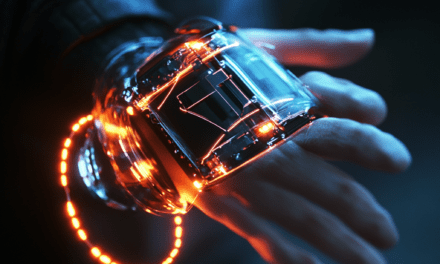Kids Fitness Trackers-Pros & Cons.
Seems like fitness trackers are everywhere these days, even on children. But are these fitness monitoring devices suitable for kids? Undoubtedly, they can assist in monitoring your child’s activity levels, but they also have their disadvantages.
There are benefits of fitness monitors for kids.
Promotes awareness about health and fitness among children: A fitness tracker can aid your child in realizing that their health is their responsibility.
It is excellent for monitoring sleep. Fitness trackers that include sleep tracking features provide a valuable tool to check whether your child is receiving adequate each night.
It Promotes physical activities and inspires children to workout. The statistics offered by fitness trackers can act as an effective incentive system for children, and the immediate data about their activity levels can provide additional encouragement to be active. Some trackers feature enjoyable rewards such as badges or can connect to family members’ devices to enable households to engage in good-natured activity contests. These gamified elements can inspire children to increase their movement to achieve their objectives.
It assists in monitoring your child’s physical activity. In the United States, merely 25% of children fulfill the required daily physical activity. The American Academy of Pediatrics suggests that children from 6 to 17 should participate in 60 minutes of physical activity each day, and those aged 3 to 5 should have at least 180 minutes of physical activity spread throughout the day. Providing your child with a fitness tracker can aid in ensuring they reach these activity targets.
There are drawbacks too of fitness trackers for kids.
It can trigger worry in some children. Some kids might be more prone to anxiety when they fail to achieve their fitness targets. If you observe your child becoming upset over not reaching their workout goals, or if they establish stringent dietary rules, consult your child’s pediatrician.
It might transform exercise into a tedious task and eliminate the joy of physical activities: If children perceive physical activity as a burdensome task, their enthusiasm to engage in movement and play could diminish. Negative associations with exercise might arise if they feel scrutinized or managed by their parents through a monitoring device.
These fitness trackers can promote screen addiction, considering technology’s addictive nature. The majority of children are already equipped with phones, tablets, and computers. If your offspring has a tendency to obsess over technology, it might be more beneficial to promote outdoor activities and leave all electronic devices behind, including fitness trackers.
These trackers may not capture all activities of young children. Typical activities of younger children, like climbing, spinning, and throwing, may not be accurately tracked. However, these are still enjoyable and active movements. Fitness trackers function by observing the arm and body movements, and since most young children don’t yet have a regular gait, their activity levels are often underestimated by these devices.
When searching for a fitness tracker or smartwatch for children, it’s crucial to prioritize devices that can tolerate active play, have a water-resistant shell, possess a long-lasting battery to keep up with your kids, and feature apps that allow you parental control.
There are numerous affordable choices for young users. Choose the one loaded with features that children will adore. These features range from custom apps for kids, step trackers, digital rewards for activity, to sleep monitors. Apps are available that allow parents to establish routines and track the progress of young users. Many also have a built-in GPS so you can track your child’s whereabouts when you’re not together. Some even provide messaging and calling capabilities for maintaining contact.
Given that children are practically tethered to their devices, it could be the perfect opportunity to invest in a wearable for your child. However, you don’t need to spend a fortune on a high-end gadget, only for it to end up damaged within weeks. Instead, consider opting for a durable and functional ones, specifically designed for children.
Despite the obvious advantages, it’s crucial to remember that fitness trackers accumulate a significant amount of private information about the individual wearing it. Considering that some trackers are designed for children, it’s vital to scrutinize the extent of data these gadgets gather from kids and evaluate your comfort level prior to purchase.
If you’re contemplating buying a wearable tracker for the young fitness enthusiast in your family, it’s advisable to opt for a model specifically designed for kids rather than an adult-oriented one.
Nevertheless, if a third-party app is linked with the device, it might still be able to monitor your child’s location.
After you’ve acquired a device, implement a few security measures for safety:
- Regularly erase your child’s information
- Strive to keep as much information as possible on the device itself, instead of choosing to distribute it to external parties
- Disable geolocation on the associated app of the device
Another suggestion from professionals is to think about disabling alerts, which can divert children’s attention when they’re concentrating on activities like dance sessions or basketball drills.
We must be conscious of the fact that a variety of data is gathered by fitness trackers with GPS.
One key element to think about is location tracking. The parents would want this, as it offers reassurance. However, it also presents privacy issues that are, in certain aspects, more alarming than the risk of them getting lost at a zoo. Malicious individuals can also access and track your children’s locations, familiarize themselves with their daily schedules, and tail them which is quite unsettling.
Besides the personal details you or your child provide to a fitness tracker, like identity, birth date, and sex, these gadgets may gather body-specific data such as the user’s stature, weight, number of steps, active duration, sleep hours, and so forth.
While the firm might be proficient at safeguarding your data, the same cannot be said for third parties. So exercise caution before buying a fitness tracker for kids and think of all possible consequences positive as well as negative.




